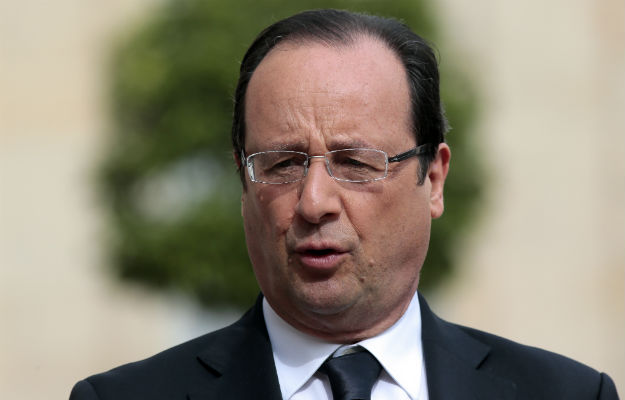
From Denis MacShane, Foreign Policy: When I was Tony Blair’s Europe minister, I was given very clear instructions that I should not use my cell phone in Paris because a transcript of what I said would be on a French minister’s desk within 15 minutes.
I ignored the advice not because I doubted it was true but because I couldn’t think of a more efficient way to convey Her Majesty’s Government’s line to the French. Yet French President François Hollande has nonetheless condemned the alleged U.S. eavesdropping, protesting that "We cannot accept this kind of behavior from partners and allies." Hollande’s trade minister, meanwhile, hinted that the snooping could endanger the EU-U.S. transatlantic trade negotiations due to open in Washington next week. Paris had clearly forgotten the 2005 trial of a dozen Elysée officials who, at the behest of President Francois Mitterrand, listened in on the phone calls of political opponents and journalists in the 1980s. . . .
France, however, has not been alone in condemning the espionage allegations. Berlin called in the U.S. ambassador to lodge a complaint and the president of the European Parliament, the German Martin Schulz, demanded to know why the United States treats Europe "how they would treat a hostile power." Yet Germany’s own security agency, the Bundesnachrichtendienst or BND, is notorious for leaking intercepts to journalists in order to expose its targets. For example, BND sources are frequently quoted by Serb propagandists and can be read on Wikipedia as part of their campaign to discredit Kosovo’s prime minister, Hashim Thaci, by dredging up false allegations that he ran a private organ-harvesting operation during the Kosovo War in 1998-99. . . .
Throughout all of this, the Brits have remained the most muted, despite the fact that it was a British newspaper, the Guardian, that broke the Edward Snowden story and sent the computer geek on the road to exile in one authoritarian country or another. Perhaps that’s because they too have done their fair share of snooping on friends. The Guardian also recently reported that the Brits spied on those who participated in the 2009 G-20 summit in London, including, presumably, Obama. Under then Labour Prime Minister Gordon Brown, the BlackBerrys of visiting officials were hacked and fake Internet cafés were set up in order to gain access to private email accounts. . . .
The news that the United States was listening to communications in the European Commission, Council of Ministers, or Parliament was simply laughed at. Talkative, audience-hungry Eurocrats and politicians spill their beans over lunch every day of the week in Brussels — and to anyone willing to listen. The idea of some hapless American trainee spook trying to decode Eurospeak sounds to most Europeans like a punishment worse than anything Snowden might face in exile. . . .
For decades, Europeans complained that the United States didn’t listen to its European allies. Now, the Snowden saga has revealed that Europe finally has America’s ear — if not exactly in the way it had bargained for.
Denis MacShane is Britain’s former minister for Europe. His last book was Why Kosovo Still Matters. (photo: Jacques DeMarthon/Getty)
Image: getty%207%203%2013%20Hollande.jpg
